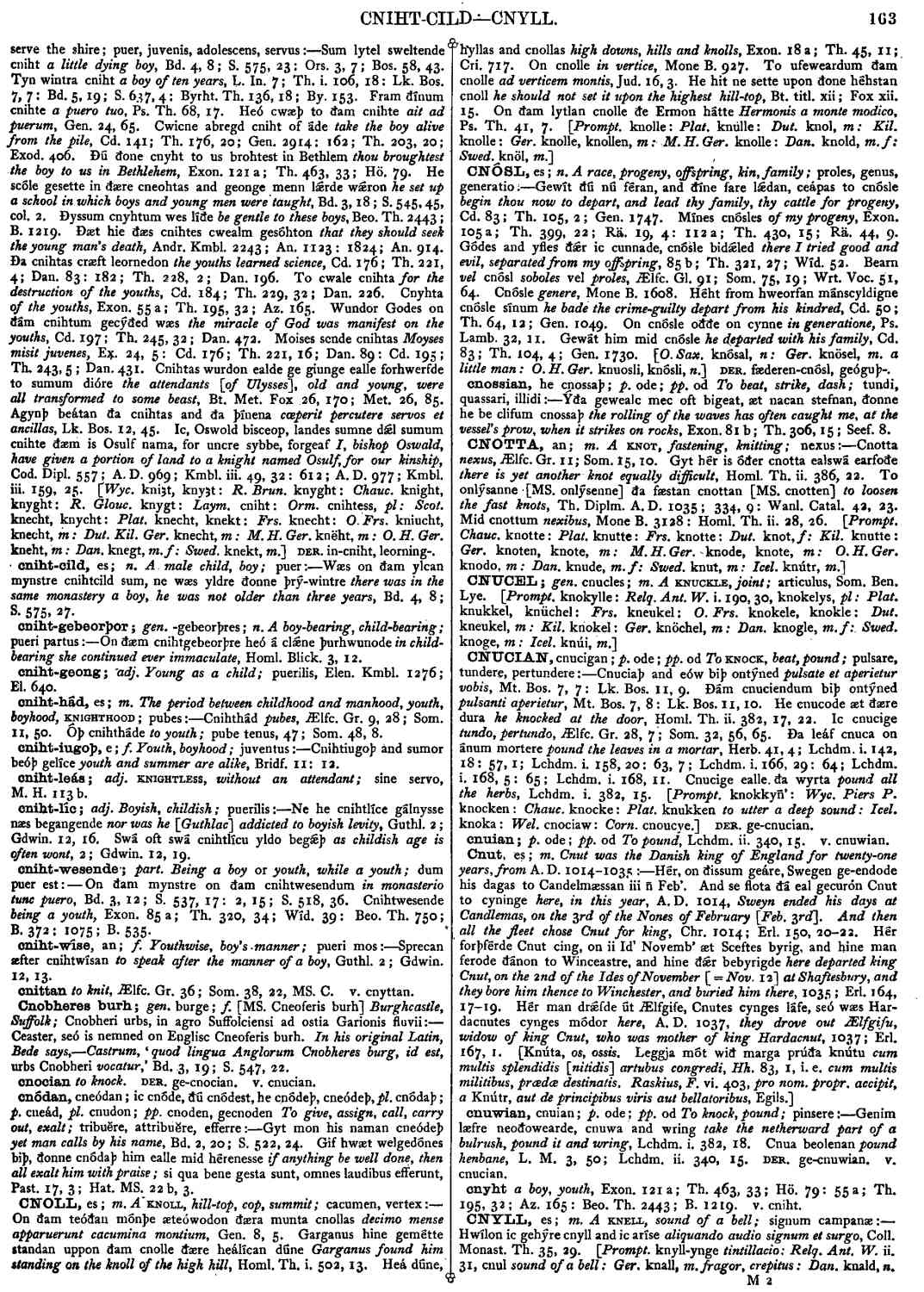Cnut
- noun [ masculine ]
-
Hér, on ðissum geáre, Swegen ge-endode his dagas to Candelmæssan iii n Feb'. And se flota ðá eal gecurón Cnut to cyninge
here, in this year, A. D. 1014, Sweyn ended his days at Candlemas, on the 3rd of the Nones of February [Feb. 3rd]. And then all the fleet chose Cnut for king
- Chr. 1014;
- Erl. 150, 20-22.
-
Hér forþférde Cnut cing, on ii Id' Novemb' æt Sceftes byrig, and hine man ferode ðánon to Winceastre, and hine ðǽr bebyrigde
here departed king Cnut, on the 2nd of the Ides of November [= Nov. 12] at Shaftesbury, and they bore him thence to Winchester, and buried him there [1035]
- Erl. 164, 17-19.
-
Hér man drǽfde út Ælfgife, Cnutes cynges láfe, seó wæs Hardacnutes cynges módor here, A. D. 1037,
they drove out Ælfgifu, widow of king Cnut, who was mother of king Hardacnut, A. D. 1037
- Erl. 167, 1.
Bosworth, Joseph. “Cnut.” In An Anglo-Saxon Dictionary Online, edited by Thomas Northcote Toller, Christ Sean, and Ondřej Tichy. Prague: Faculty of Arts, Charles University, 2014. https://bosworthtoller.com/6481.
Checked: 1